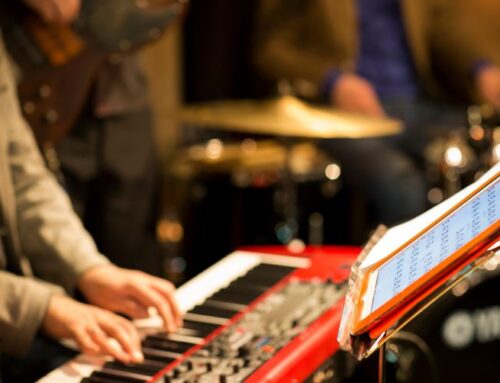The ukulele, a small but mighty instrument, has an intriguing history that spans continents and centuries. In this article, we’ll embark on a journey through time, tracing the evolution of the ukulele and uncovering its roots in various cultures. From its humble beginnings to its rise in popularity worldwide, the ukulele’s history is a fascinating tale of musical migration and cultural exchange.
Looking for Ukulele lessons in or near Burlington, Ontario? At Capstone Music, we’ve real Uke musicians teaching our students the beloved instrument.
I. The Birth of the Ukulele
Origins in Portugal
The ukulele’s story begins in the 19th century, tracing its roots back to the Portuguese instrument known as the machete. Introduced to Hawaii by Portuguese immigrants in the 1870s, the machete underwent a transformation, giving birth to what we now recognize as the ukulele.
Naming the Uke
Legend has it that the name “ukulele” translates to “jumping flea” in Hawaiian, a nod to the instrument’s lively and nimble sound. This marked the beginning of the ukulele’s unique identity and cultural significance in Hawaii.
II. The Ukulele in Jazz Age America
Ukulele Craze in the 1920s
The ukulele found its way to the mainland United States during the Jazz Age, becoming a symbol of carefree joy and easygoing entertainment. Its compact size and cheerful sound made it a favorite among amateur musicians, sparking a nationwide ukulele craze.
Ukulele in Popular Culture
During this era, the ukulele made its mark in popular culture, featuring prominently in Vaudeville performances, radio broadcasts, and early sound films. Its accessibility and affordability contributed to its widespread popularity, making it the perfect instrument for music enthusiasts of all ages.
III. Global Influence and Adaptations
Ukulele Around the World
As the ukulele gained popularity in the United States, it also started to make its mark around the world. From Europe to Asia, different cultures embraced the instrument, adapting it to their musical traditions and creating unique ukulele styles.
Ukulele’s Role in Latin American Music
In Latin America, the ukulele found a home in traditional music genres, adding a distinctive flair to genres like bossa nova and samba. The instrument’s versatility allowed it to seamlessly integrate into various musical landscapes, showcasing its adaptability across cultures.
IV. The Ukulele Renaissance: 21st Century Revival
Online Communities and Tutorials
The 21st century witnessed a ukulele renaissance, fueled in part by the rise of online communities and tutorial platforms. Enthusiasts from all walks of life could now access resources to learn, share, and celebrate the ukulele, contributing to a global resurgence of interest in the instrument.
Ukulele in Contemporary Music
From indie folk to mainstream pop, the ukulele has become a staple in contemporary music. Artists like Jason Mraz and Grace VanderWaal have propelled the instrument back into the spotlight, showcasing its versatility and modern appeal.
Picking Up the Ukulele May Mean You’ll Never Let it Go!
The ukulele’s journey through time is a testament to its enduring charm and adaptability. From its humble beginnings in Portugal to becoming a global phenomenon, the ukulele has woven its way into the fabric of diverse musical traditions. As we strum through the instrument’s rich history, it’s evident that the ukulele’s story is far from over – it continues to evolve and resonate with musicians and audiences worldwide, ensuring its place in the musical tapestry of the future.






